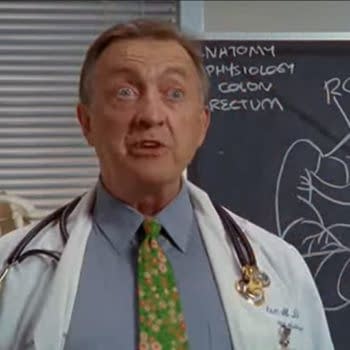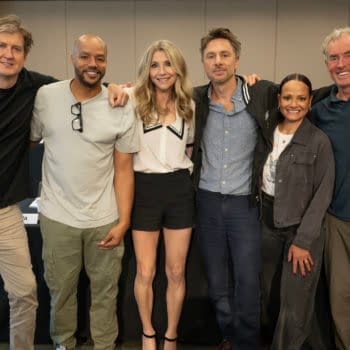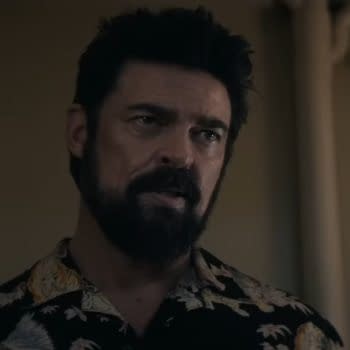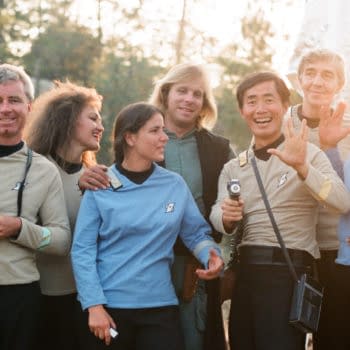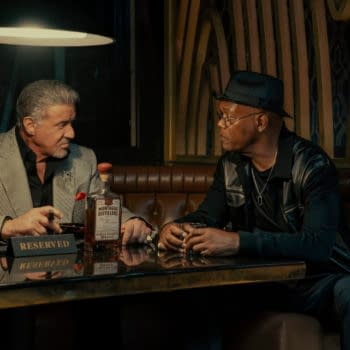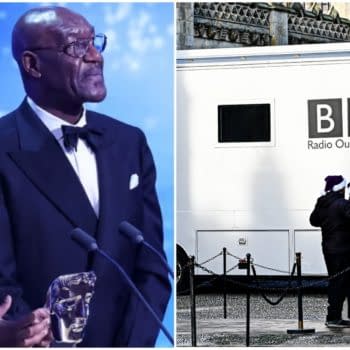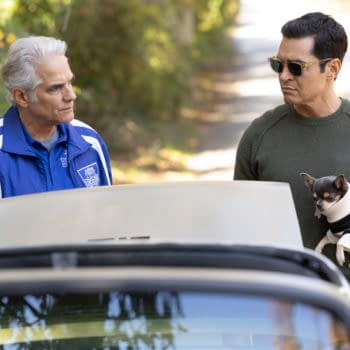Posted in: Netflix, streaming, TV | Tagged: exclusive, house of usher, interview, Jonathan Wales, Mike Flanagan, netflix, nine inch nails, the fall of the house of usher
House of Usher Sound Editor on Score Collaboration, Nine Inch Nails
Sound Editor Jonathan Wales (Midnight Mass) spoke with Bleeding Cool about The Fall of the House of Usher score, Nine Inch Nails, and more.
Jonathan Wales is proud to have carved out a nearly three-decade legacy working in the entertainment industry in sound. He's become a particular favorite in the horror genre, which includes work in the Saw, Tremors, Hallow Man, The Hills Have Eyes, and Evil Dead franchises. On top of the 300 titles to his name, his influence has caught the eye of one of horror's greatest contemporary minds in director Mike Flanagan, who not only adapted author Stephen King's works in Gerald's Game and Doctor Sleep theatrically, but he's also built an empire on Netflix that includes the critically-acclaimed miniseries like Midnight Mass, Midnight Club, The Haunting of Bly Manor, and the remake of The Haunting of Hill House. His latest project is adapting Edgar Allan Poe's short story The Fall of the House of Usher as a limited series, following the CEO of a corrupt pharmaceutical company (Bruce Greenwood), who faces his questionable past when his children start dying in mysterious and brutal ways. Wales spoke to Bleeding Cool about working with composers (and Flanagan favorites) Newton Brothers, the psychology between the artist and the audience, and the series' use of the Nine Inch Nails song Closer.
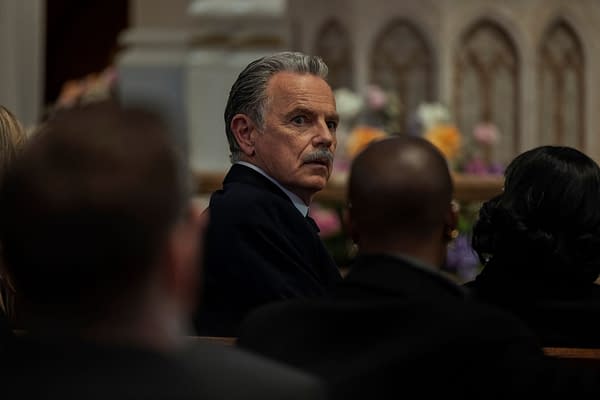
Developing the Sound of 'The Fall of the House of Usher'
Bleeding Cool: As we established, Mike tends to stick to a familiar creative company, which musically also includes the Newton Brothers. Can you tell me how you mesh with them in the various projects?
Wales: I've done a lot of work with the Newton Brothers, and we're great friends. If there's one thing I'll say about Mike Flanagan and working with the Newtons, it's that nothing's ever the same. Every project Mike wants to approach completely uniquely, so the score that they composed for this is different than, for instance, the score we did for 'Midnight Mass,' 'Midnight Club,' and different from 'Hill House.' That's part of what makes it interesting because you never know what you're going to get in terms of either what Mike is going to want or what he's going to decide works.
There's an evolutionary process, too, that's also a bit of a voyage of discovery. In turn, the Newton brothers will put things together and work with Mike. Sometimes it's not yet even evolved by the time I'm working on mixes, and we end up changing stuff a lot while doing the mixes. Sometimes it's much more defined when we get going. That's a question of what's going to be, what's going to work best for the storytelling, and how are we going to get there. We've gone through projects we've worked on several situations where we started with a score we thought was going to be one thing, and then it evolved into something completely different.
This score was one of the most consistent in that what we were where they started and where we ended up was much closer than usual. That's also because Mike was going for a specific style, which was definable. We couldn't orchestrate until much later in the process, so I was mixing entire episodes of the show with the MIDI version of the score and getting to a point where Mike was happy. We then had to go back around, record the strings in the orchestra, and effectively remix it without changing it too much. That was an interesting thing to do.
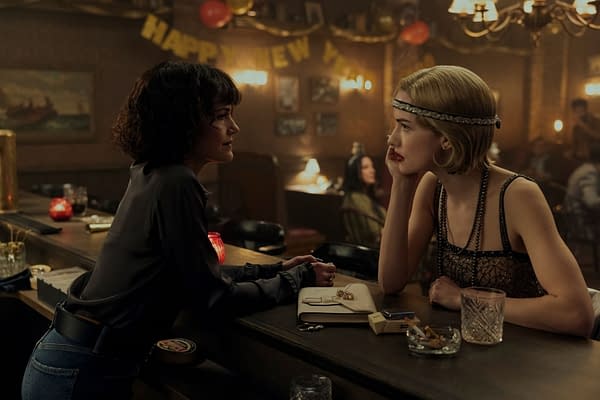
Was there a particular sequence in an episode that was more difficult or just stood out more than the others that you had to take more time on?
There were things in every episode that were difficult that we had to take a lot of time on, the masquerade party at the end of episode two was difficult. We got to have a lot of fun with music because we got to do the Chris Isaac remix and the Nine Inch Nails original mix of 'Closer,' both specifically for that scene which was planned from the beginning. To get the intensity for a scene like that and then to be able to have an intimate dialog moment or the long scene on the bed with Carla [Gugino] and be able to get that level of intimacy whilst still understanding that there's a giant party going on outside and making it all feel organic.
The trick with movies is to get it with what I'm doing to get to a place where when an audience watches it, they're like, "Of course, it sounds this way, but it doesn't. It didn't when we began." A lot of it is like if people buy into it, it's like, "I get it." That's what that sounds like, that's how it feels, and that's how I imagine it would feel. That's when we win. It's like almost once we get to that place where everybody would believe that we never did anything, then that's when we've succeeded. The crazier the situations are, sometimes the harder it is to get to that place. I want it all to flow and work in a way that nobody thinks, "Some dude was doing this." That is the key. Mike comes along and is like, "Let's do this one crazy thing," and then it becomes obvious that we've done something. That is also part of what makes it work.
The Fall of the House of Usher, which also stars Carlo Gugino, Mary McDonnell, Rahul Kohli, Samantha Sloyan, T'Nia Miller, Zach Gilford, Willa Fitzgerald, Michael Trucco, Katie Parker, Carl Lumby, and Mark Hamill, is streaming on Netflix.






